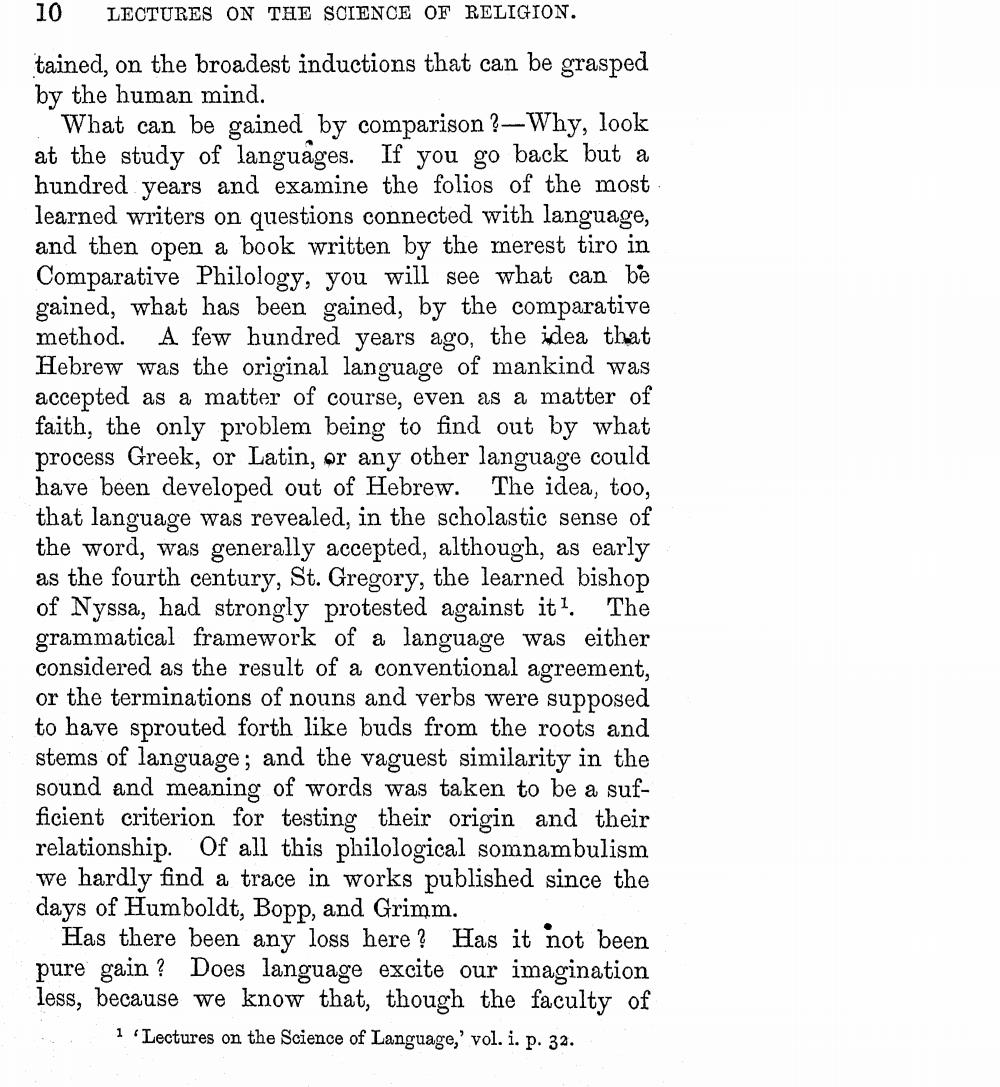________________
10
LECTURES ON THE SCIENCE OF RELIGION.
tained, on the broadest inductions that can be grasped by the human mind.
What can be gained by comparison ?-Why, look at the study of languages. If you go back but a hundred years and examine the folios of the most learned writers on questions connected with language, and then open a book written by the merest tiro in Comparative Philology, you will see what can be gained, what has been gained, by the comparative method. A few hundred years ago, the idea that Hebrew was the original language of mankind was accepted as a matter of course, even as a matter of faith, the only problem being to find out by what process Greek, or Latin, or any other language could have been developed out of Hebrew. The idea, too, that language was revealed, in the scholastic sense of the word, was generally accepted, although, as early as the fourth century, St. Gregory, the learned bishop of Nyssa, had strongly protested against it? The grammatical framework of a language was either considered as the result of a conventional agreement, or the terminations of nouns and verbs were supposed to have sprouted forth like buds from the roots and stems of language; and the vaguest similarity in the sound and meaning of words was taken to be a sufficient criterion for testing their origin and their relationship. Of all this philological somnambulism we hardly find a trace in works published since the days of Humboldt, Bopp, and Grimm.
Has there been any loss here? Has it not been pure gain ? Does language excite our imagination less, because we know that, though the faculty of
I 'Lectures on the Science of Language,' vol. i. p. 32.




